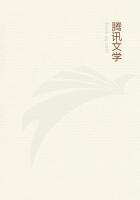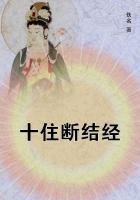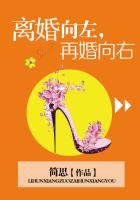Footsack fumbled about his person, his hair, his waistcoat pockets and even his moocha, and ultimately from somewhere produced a stone which he handed to me. I looked at it, and from the purity of colour and size, judged it to be a diamond worth #200, or possibly more. After careful examination I put it into my pocket, saying, "This is the price of your master's gin and therefore belongs to him as much as it does to anybody. Now if you want to keep out of trouble, tell me--whence came it into the hands of that man, Karl?"
"Baas," replied Footsack, trembling all over, "how do I know? He and the rest have been working at the mines; I suppose he found it there."
"Indeed! And did he find others of the same sort?"
"I think so, Baas. At least he said that he had been buying bottles of gin with such stones all the way down from Kimberley.
Karl is a great drunkard, Baas, as I am sure, who have known him for years."
"That is not all," I remarked, keeping my eyes fixed on him.
"What else did he say?"
"He said, Baas, that he was very much afraid of returning to the Baas Marnham whom the Kaffirs call White-beard, with only a few stones left."
"Why was he afraid?"
"Because the Baas Whitebeard, he who dwells at Tampel, is, he says, a very angry man if he thinks himself cheated, and Karl is afraid lest he should kill him as another was killed, he whose spook haunts the wood through which those silly people feared to pass last night."
"Who was killed and who killed him?" I asked.
"Baas, I don't know," replied Footsack, collapsing into sullen silence in a way that Kaffirs have when suddenly they realize that they have said too much. Nor did I press the matter further, having learned enough.
What had I learned? This: that Messrs. Marnham & Rodd were illicit diamond buyers, I.D.B.'s as they are called, who had cunningly situated themselves at a great distance from the scene of operations practically beyond the reach of civilized law.
Probably they were engaged also in other nefarious dealings with Kaffirs, such as supplying them with guns wherewith to make war upon the Whites. Sekukuni had been fighting us recently, so that there would be a very brisk market for rifles. This, too, would account for Marnham's apparent knowledge of that Chief's plans.
Possibly, however, he had no knowledge and only made a pretence of it to keep us out of the country.
Later on I confided the whole story and my suspicions to Anscombe, who was much interested.
"What picturesque scoundrels!" he exclaimed, "We really ought to go back to the Temple. I have always longed to meet some real live I.D.B.'s."
"It is probable that you have done that already without knowing it. For the rest, if you wish to visit that den of iniquity, you must do so alone."
"Wouldn't whited sepulchre be a better term, especially as it seems to cover dead men's bones?" he replied in his frivolous manner.
Then I asked him what he was going to do about Footsack and the bottle of gin, which he countered by asking me what I was going to do with that diamond.
"Give it to you as Footsack's master," I said, suiting the action to the word. "I don't wish to be mixed up in doubtful transactions."
Then followed a long argument as to who was the real owner of the stone, which ended in its being hidden away be produced if called for, and in Footsack, who ought have had a round dozen, receiving a scolding from his master, coupled with the threat that if he stole more gin he would be handed over to a magistrate--when we met one.
On the following day we reached the hot, low-lying veld which the herd of buffalo was said to inhabit. Next morning, however, when we were ****** ready to begin hunting, a Basuto Kaffir appeared who, on being questioned, said that he was one of Sekukuni's people sent to this district to look for two lost oxen. I did not believe this story, thinking it more probable that he was a spy, but asked him whether in his hunt for oxen he had come across buffalo.
He replied that he had, a herd of thirty-two of them, counting the calves, but that they were over the Oliphant's River about five-and-twenty miles away, in a valley between some outlying hills and the rugged range of mountains, beyond which was situated Sekukuni's town. Moreover, in proof of his story he showed me spoor of the beasts heading in that direction which was quite a week old.
Now for my part, as I did not think it wise to get too near to Sekukuni, I should have given them up and gone to hunt something else. Anscombe, however, was of a different opinion and pleaded hard that we should follow them. They were the only herd within a hundred miles, he said, if indeed there were any others this side of the Lebombo Mountains. As I still demurred, he suggested, in the nicest possible manner, that if I thought the business risky, I should camp somewhere with the wagon, while he went on with Footsack to look for the buffalo. I answered that I was well used to risks, which in a sense were my trade, and that as he was more or less in my charge I was thinking of him, not of myself, who was quite prepared to follow the buffalo, not only to Sekukuni's Mountains but over them. Then fearing that he had hurt my feelings, he apologized, and offered to go elsewhere if I liked. The upshot was that we decided to trek to the Oliphant's River, camp there and explore the bush on the other side on horseback, never going so far from the wagon that we could not reach it again before nightfall.













